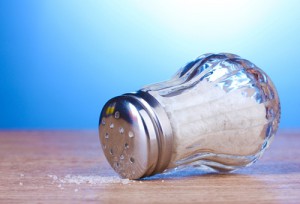Your heart health isn’t entirely dependent on family history and how much you exercise. While these are important factors, what you eat is also a major contributor to cardiac well-being. While you probably know a balanced diet consists of produce, protein and fiber, you may not know which ingredients can be particularly damaging to your heart. Here are a few foods to limit in your diet:
Saturated fats
One of the most talked-about ingredients that can be harmful to your cardiac health is saturated fats. In recent years, however, there has been some conflicting advice on how much these fats affect the heart. Foods that are high in saturated fat like pork, chicken skin, butter and cheese can raise the amount of cholesterol in your blood. They also contain many calories that can affect your weight, which also negatively impacts your overall heart health. So, how much saturated fat should you eat in a day? The American Heart Association recommends only 5-6 percent of your daily caloric intake should be saturated fat, or 120 calories in a 2,000 calorie diet. Try to stay away from fried items or anything that contains a lot of oil as these tend to take up the suggested amount quickly and go overboard, potentially affecting your cholesterol.
Sugars
There are so many different names for sweeteners these days that it can be hard to know what ingredients are actually sugar. Harvard Health Publications noted that sweet beverages such as juices and soft drinks offer little to no nutritional value. These empty calories can cause weight gain and increase your cholesterol. Drink water instead and you can enjoy those calories in the form of more satisfying, healthy food like some extra quinoa, added veggies or a tasty fruit dessert.
Salt
The AHA recommends less than one teaspoon of salt per day. While sprinkling on some of this tasty seasoning can liven up your meal, it may also increase your chances of heart failure. Not only may you feel bloated after indulging in too many salty snacks, your heart might be experiencing fluid buildup as well. Similar to sugar, it’s tricky to know all the foods that contain harmful amounts of salt. This chemical is added to most processed foods to preserve them and boost their flavor. Always check the nutritional label under “sodium” to see how much is in your diet. It’s important to note that an item that says, “No salt added” or “No sodium added” may still have a lot of salt in it; it’s just naturally occurring.
If you find a food that has a lot of sodium, try another brand and you may find it’s healthier. Or stick to natural, unprocessed foods like fresh produce. These offer more nutrients than most packaged food and you don’t have to worry about checking the nutrition label. Also, be wary of pre-mixed spices as many contain a lot of salt. You can note your favorite mix’s ingredients and make your own version without salt for a more heart-healthy way to spice up your meal.
If you found an error, highlight it and press Shift + Enter or click here to inform us.




